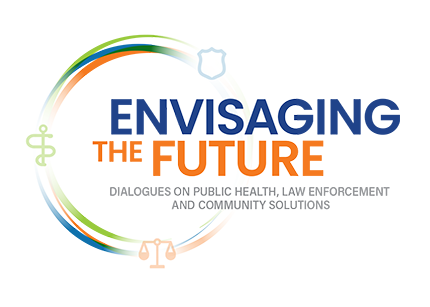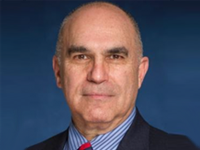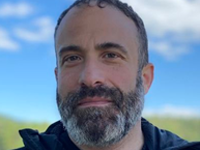Marketplace of Ideas 2022 / Event programme / Plenary session #2

MONDAY 19 SEPTEMBER 2022
Plenary session #2 | Influencing institutionalised beliefs, behaviours and practises
7am Los Angeles/10am New York/3pm London/5pm Nairobi/9pm Bangkok/midnight Sydney
We are increasingly recognizing that our usual ways of addressing problems in society – over-reliance on punishment, coercion and incarceration – have not worked or have systematically made things worse. There is an urgent need to reimagine issues that have been traditionally seen as criminal through a public health lens instead, but this requires adopting a significant shift in mindset.
Join us for this panel discussion where we bring together expert discussants and rapporteurs to summarize and reflect on what we have learnt so far from previous sessions in this Marketplace of Ideas event series. These previous sessions showcased a wide range of programmes that explore alternative approaches to public health issues that have traditionally been criminalized or over-policed.
The panel will discuss how these programmes have successfully made headway in influencing and changing institutionalized beliefs, behaviours and practices across a range of different contexts and settings, what challenges they have experienced in doing so, and how they have overcome them.
Session duration: 90 minutes
MODERATOR
Maureen McGough is Chief of Strategic Initiatives for the Policing Project at New York University School of Law. She joined the Policing Project from the National Police Foundation, where she led the non-profit’s research, training, and technical assistance efforts as Director of National Programmes. Prior to joining the National Police Foundation, Maureen spent a decade with the federal government in various roles with the US Department of Justice and US Department of State. She served as Senior Policy Advisor to the Director of the National Institute of Justice, where she led agency efforts to advance evidence-based policing, improve the representation of women in policing, and implement systems-level criminal justice reform initiatives. Maureen is an attorney and earned her J.D. from the George Washington University Law School.
DISCUSSANT
Sheldon Greenburg
Sheldon Greenburg has spent years working to build the relationship between law enforcement and public health. His perspective is based, in great part, on his service as a police officer and a professor in education and public health. Sheldon has served on numerous boards and commissions and in varied leadership roles that prepared him to contribute to the GLEPHA Board as it moves forward. Among the boards on which he has served are the Forum on Global Violence Prevention, National Academy of Sciences, Federal Law Enforcement Training Accreditation, Road Safety Workforce Development, YMCA, Maryland School for the Deaf, and the Mid Atlantic Emergency Management Center. Sheldon also served in roles as Associate Dean, Division Director, and Department Chair at Johns Hopkins University and as Associate Director of the Police Executive Research Forum.
Brandon del Pozo, PhD is Assistant Professor of Medicine and Health Services, Policy & Practice at Brown University, where he conducts NIH-funded research at the intersection of public health, public safety, and justice. Dr. del Pozo served in the New York City Police Department for 19 years, where he started on patrol in Brooklyn, and went on to command two precincts. He also spent four years as Chief of Police of Burlington, Vermont, where he directed the city’s interdisciplinary response to the opioid crisis. He was the 2016 recipient of the Police Executive Research Forum’s Gary Hayes Award for excellence in police leadership, and his writing has been featured in The New York Times, The Washington Post, The Philadelphia Inquirer, and the New York Daily News. Dr. del Pozo’s book, The Police and the State: Security, Social Cooperation, and the Public Good, will be published by Cambridge University Press.
RAPPORTEURS
Dr. Amy Watson
Amy Watson is a professor at Jane Addams College of Social Work at University of Illinois at Chicago. She also holds a courtesy appointment in the Department of Crime Law & Justice. She has worked extensively on issues involving the relationship between the criminal justice system and mental health systems, in Chicago and around the country. Her current research focuses on police encounters with persons with mental illnesses and the Crisis Intervention Team (CIT) model. Dr. Watson has published extensively on this work and presented findings to local, national and international audiences. She is Co-Convener of the GLEPHA Law Enforcement and Mental Health Special Interest Group.
Elliot Pinsly
Elliot Pinsly serves as Chief Executive Officer for the Behavioral Health Foundation, a non-profit policy center driving meaningful systems and policy changes that reduce stigma and improve access to voluntary, evidence-based mental health and addiction care. Elliot is a passionate thought leader and award-winning advocate who has been instrumental in developing and expanding crisis walk-in centers, deflection and pre-arrest diversion programming, harm reduction access, and innovative mental health awareness initiatives. Elliot co-chairs and co-founded the Tennessee Diversion Coalition, and co-leads 988 mental health crisis initiatives for the Police, Treatment, and Community Collaborative. Elliot is a Licensed Clinical Social Worker with a master’s degree from Tulane University in New Orleans, Louisiana. In past roles, he provided mental health services as a therapist for military veterans, children, and families. Elliot is Co-Convener of the GLEPHA Special Interest Group on Mental Health.
Ben is a PhD candidate in Social Intervention and Policy Evaluation at the University of Oxford. In his doctoral project, Ben is using qualitatively driven ethnographic methods to conduct an international comparison of harm reduction initiatives, across Canada, the US and the UK. He is passionate about producing research that can direct policymakers in their efforts to establish more effective and humane interventions that address both the overdose crisis and the complex health, environmental and socio-economic needs of the often marginalized communities impacted by drug overdoses. Prior to his DPhil studies, Ben worked in the non-profit sector in Canada and the UK, specifically within client-facing homelessness services such as emergency shelters, supervised consumption sites, housing first and outreach settings.
Tracey Price is a qualitative researcher and independent consultant who has research interests in substance use, drug policy and the intersection between law enforcement and public health. Tracey has a background in social care and social work is passionate about amplifying the voices of those with lived and living experience. She owns and operates MyCorZ Research & Training Consultancy and takes on a range of projects, including: proposal development, data collection, analysis, writing and enhancing research impact.
Tracey is a member of Drugs Research Network Scotland and the Scottish Institute for Policing Research, and a member of the Scottish Drug Death Taskforce’s Criminal Justice and Law subgroup. She is a Co-convener and founding member of GLEPHA’s Special Interest Group on Deflection and Diversion.
Cierra McDonald
Cierra McDonald is a Research and Evaluation Coordinator working at TASC’s Center for Health and Justice. She is currently working on a National Institute for Drug Abuse Justice Community Opioid Innovation Network initiative that includes Texas Christian University and Loyola University. The purpose of this project is to identify gaps in access to and treatment for Medication for Opioid Use Disorder for pre and post release justice-involved individuals. Cierra is an active member of Police Treatment and Community Collaborative (PTACC), the global voice of the field of deflection, and is the PTACC Strategy Area Advisor for the International Deflection & Diversion Strategy Area. In this role, Cierra works to extend the knowledge of deflection to countries interested in learning about this emerging global approach.
Andrew is a South African policing and crime researcher. Educated at the Universities of Cape Town and Oxford, he currently works as a Senior Researcher in the Justice and Violence Prevention Programme at the Institute for Security Studies where he leads efforts to promote evidence-based policing in the country and supports government efforts to reduce serious violence. He is also an Research Associate with the Centre of Criminology at the University of Cape Town, and a co-convenor of the GLEPHA Special Interest Group on violence prevention.
Dan Jones spent 28 years in the Justice system 3 as a Correctional Officer 25 as a Police Officer. He has always seen gaps and looked for solutions to address these gaps. He received his Masters Degree from the University of Cambridge in Applied Criminology and is currently a PhD Candidate at the University of Huddersfield. His area of research is looking at the Victim Offender Overlap and what role trauma plays in incarcerated populations.
Melissa Jardine is a former Victoria Police officer and has long term interest in the development of policing in Asia. She completed her PhD on policing in Vietnam at the University of New South Wales. She works as a consultant to the United Nations, INTERPOL and other organizations in relation to gender, policing, border control and transnational crimes. Dr Jardine has written and delivered a range of international police training packages regarding HIV prevention, harm reduction approaches to drug use and sex work, and police-public health leadership. She has been an important member of the Centre for Law Enforcement and Public Health (CLEPH) since its inception, and is an Honorary Fellow at the University of Melbourne’s Nossal Institute for Global Health. She is the author of two books: Policing in a Changing Vietnam: Towards a Global Account of Policing. (Routledge, 2022); and, Women, Police and Security: Reforming the Afghan National Police (GLEPHA, 2022).

















